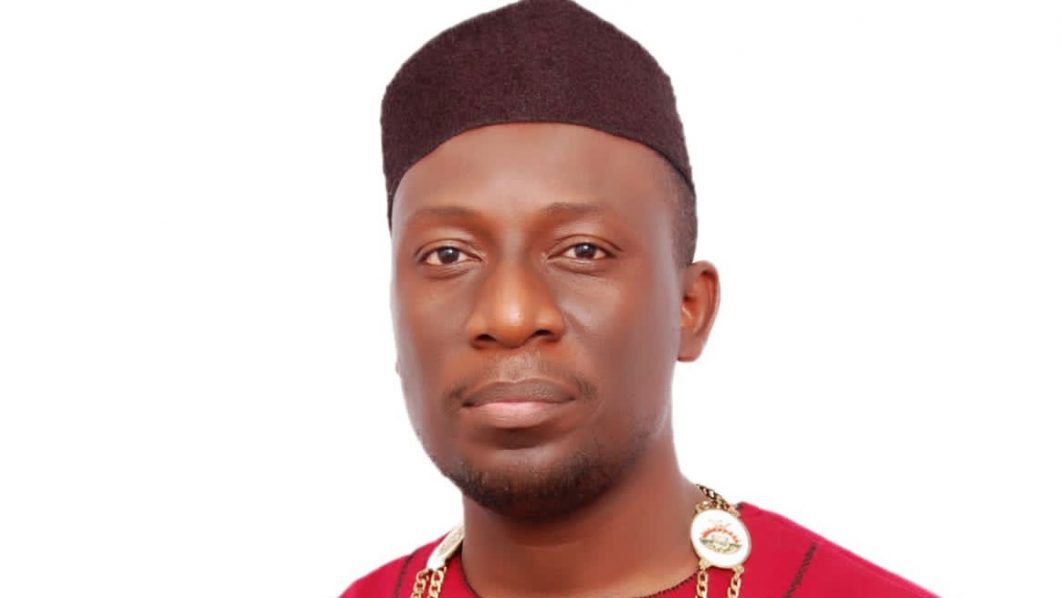
Indigenous engineers must develop capacity for projects, says Ogunmola
Despite the signing into law of Executive Order 5, participation of indigenous engineers in projects has remained low, what do you think is responsible for this and how can local engineers contribute to national development?
We must realise that Rome was not built in a day. In terms of the low participation, we have to grow overtime and the next thing we must work at is capacity building. Indigenous engineer must develop capacity for recognition in projects and building capacity comes in various forms: financing, equipment and skills.
There must be a framework where commercial banks will need to support engineers. If we do not have policy somersaults, government must remain consistent in supporting Nigerian engineers and advancing what Executive Order 5 stands for so that we can see results in years to come. Engineers need to work on themselves, go beyond engaging in a job just to pay bills, be conscious of growth and development, and liaise with government and financial institutions to compete globally. It is not correct for engineering professionals to compromise standards to advance national development. Standards and quality make most Nigerians to prefer foreign products than the local.
The major aim of engineering is to identify problems and proffer solutions, and so, it is the soul of national development; you can only talk of development in terms of engineering. It is only when engineering plays its role that Nigeria can get ahead. It has a wide spectrum from conception to design, procurement, construction, operation and maintenance.
Nigerian engineers have over the years, played role in operations and maintenance, it’s for engineers now to up their games and influence national development.
They need to come together with those in the universities, the field and evolve a framework of development where they can translate research and development and make contributions across the different parts of the spectrum of the profession.
Nigeria can’t get ahead without engineering, the government and citizens must begin to recognise the role of engineering. The nation must understand how engineering education flow to practice and developmental direction.
Experts have expressed worries on the capacity of engineering graduates to compete with other young professionals. Why do we have this challenge and what is the way forward?
It has been a general challenge and not limited to engineering, it is the drop in the quality of our educational system over the years. Peculiar to engineering is the gap we had over time between the academia and the industry. We have seen a situation whereby in other professions, they have been able to introduce house-manship for like a year to undertake practical examples of what they have learnt in the university.
Engineering created the industrial training framework and has been driven by government through the ITF but over time we have seen a situation where the industry has not been forthcoming and we see situation where students we continue to look for places to undertake their IT and sometimes you see some of them ending up in irrelevant organisations. We have a lot of obsolete equipment in the school laboratories and the industries are not favourably disposed to giving opportunity to students to have practical trainings.
Stakeholders must involve more of collaborative framework. The Nigerian Society of Engineers, Ikeja branch, has been working with the Council for the Regulation of Engineering in Nigeria, the National Youth Service Corp and others, trying to grow the network of engineering organisations as partners so that when we have a pool of them, we can request for engineering graduates and they would be exposed for a year to the right practical experience in organisations.
SOURCE: Guardian.ng
Similar Topics
The Lagos State Government has commenced the demolition of illegal structures within the Lekki Free...
a month ago Read MoreNigeria’s recently enacted Tax Act of 2025 (NTA 2025), which becomes effective on January 1,...
a month ago Read MoreMember States of the United Nations Human Settlements Programme (UN-Habitat) have endorsed a new...
2 months ago Read MoreNigeria Enters a New Tax Era Come January 2026, Nigeria’s property market will experience a...
2 months ago Read MoreImproved Security and Diaspora Capital Drive Rebound The housing sector in Nigeria’s...
2 months ago Read MoreThe Lagos State Government has announced that night-time repair works will take place on Ozumba...
4 months ago Read MoreThe Federal Government has suspended all previously approved, pending, and prospective applications...
5 months ago Read MoreThe Federal Government has successfully mobilised more than N70 billion in private capital...
5 months ago Read MoreThe Lagos State Government, through the Lagos State Physical Planning Permit Authority (LASPPPA),...
7 months ago Read MoreThe Federal Government has expanded the Abuja-Kaduna-Kano Road project to incorporate a direct...
7 months ago Read MoreThe Federal Capital Territory Administration (FCTA) has taken possession of Wadata Plaza, the...
8 months ago Read MoreDefaulters on FCT ground rent now have 14 days grace to pay up what they owe the FCT Administration...
8 months ago Read MoreUnprofessional practices by estate agents in major cities are significantly influencing the spike...
8 months ago Read MoreA Real estate development firm, Lifecard International Investment Company, has revealed that many...
8 months ago Read MoreDespite a fall in investment volumes from the 2021 peak, there is an ongoing desire for property...
8 months ago Read MoreThe Lagos State government has advised the leadership of the Nigerian Institution of Estate...
8 months ago Read MoreReal estate market dynamics such as construction cost, land, finance, government policies and taxes...
8 months ago Read MoreEvent Set to Celebrate Managers Who Shape Careers and Drive Organizational Growth Business...
10 months ago Read MoreGlobal Leaders to Converge in Lagos for Landmark Event Driving Urban Innovation and...
10 months ago Read MoreIn a bold move to redefine affordable luxury housing, Nigerian real estate giant Gtext Holdings has...
10 months ago Read More
















